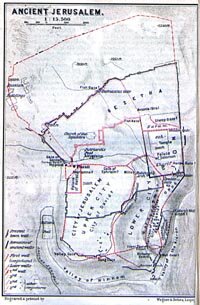She conceived again and bore a son, and said, "Now this time my husband will become attached to me, because I have borne him three sons." Therefore his name was called Levi. —Gen 29:34 ESV
The sons of Leah: Reuben (Jacob's firstborn), Simeon, Levi, Judah, Issachar, and Zebulun. —Gen 35:23 ESV
Levi is also known the progenitor of the Israelite tribe of Levi (the Levites); however some Biblical scholars view this as postdiction, an eponymous metaphor providing an Etiology of the connectedness of the tribe to others in the Israelite confederation. Certain religious and political functions were reserved for the Levites, and, according to textual scholars, the early sources of the Torah - the Jahwist and Elohist - appear to treat the term Levi as just being a word meaning priest; scholars suspect that "levi" was originally a general term for a priest, and had no connection to ancestry, and that it was only later, for example in the priestly source and Blessing of Moses, that the existence of a tribe named Levi became assumed, in order to explain the origin of the priestly caste.
More...





















